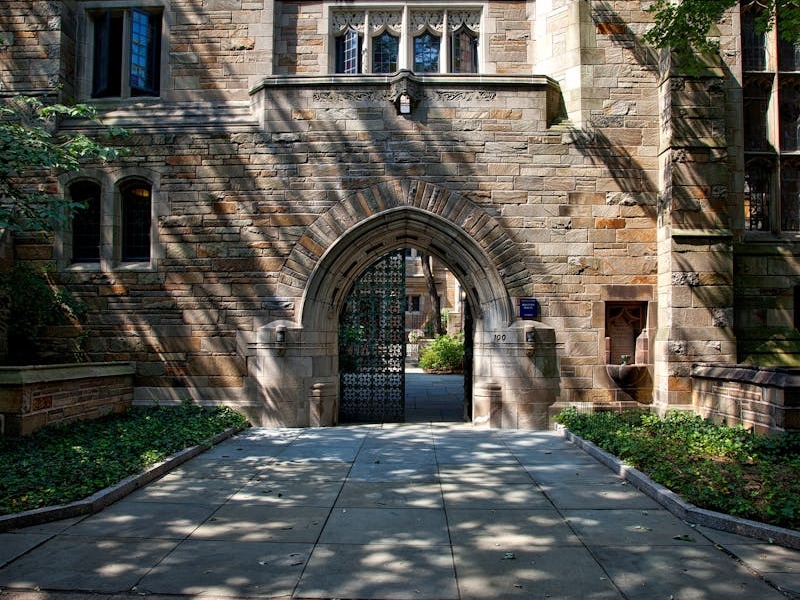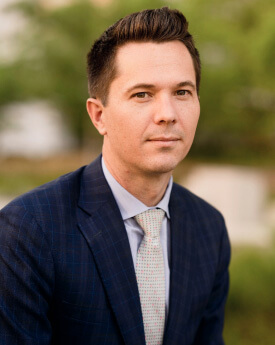Does Title IX Apply Off-Campus? What College Students Need to Know

If you’re a college student who’s been accused of sexual misconduct that allegedly occurred off-campus, you might assume Title IX doesn’t apply. Unfortunately, this dangerous misconception has left many students unprepared when they suddenly face campus disciplinary proceedings for incidents that happened miles away from school grounds.
The reality is more complex and, frankly, more concerning for students. Title IX jurisdiction has expanded dramatically over the years, and understanding its reach is essential if you’re facing allegations.
The Expanding Reach of Title IX
Title IX is federal legislation that prohibits sex discrimination in educational institutions receiving federal funding. While originally focused on ensuring equal opportunities in education, it has evolved into a powerful tool for addressing sexual harassment and assault on college campuses.
But does this authority extend beyond campus boundaries? The answer is yes—and in more situations than you might think.
Current Rules on Off-Campus Jurisdiction
Under current Title IX regulations, schools can and do assert jurisdiction over off-campus conduct in numerous scenarios. Your college or university may pursue Title IX proceedings against you if the off-campus incident:
- Occurred during a school-sponsored event or activity
- Took place at an off-campus residence like a fraternity or sorority house
- Happened during a study abroad program
- Involved the use of university computer networks or technology
- Created what the school deems a “hostile environment” on campus
- Involved another student, faculty, or staff member
What’s particularly troubling is that schools often interpret these categories broadly—sometimes claiming jurisdiction over purely private conduct occurring miles from campus involving individuals who happen to share an educational connection.
Real Situations Where Title IX Applies Off-Campus
To understand the expansive reach of Title IX, consider these scenarios where schools commonly assert jurisdiction:
Off-Campus Housing
If you live in off-campus housing, particularly near the university or in areas predominantly populated by students, the school will likely claim Title IX jurisdiction over any alleged sexual misconduct that occurs there—even if the residence has no official connection to the school.
Parties and Social Gatherings
Allegations stemming from private parties, bars, or social gatherings completely unaffiliated with the university can trigger Title IX proceedings if both the accuser and accused are students.
Spring Break and Personal Travel
Even conduct that occurs during spring break trips, summer vacations, or personal travel can fall under Title IX if another student is involved and later reports the incident.
Internships and Off-Campus Work
If you’re participating in an internship, even one you arranged independently, allegations of misconduct in that setting may trigger Title IX if the school learns of the situation.
How Schools Justify Expanded Jurisdiction
Universities justify this expansive jurisdiction through several legal and policy arguments:
- “Educational Program or Activity” Interpretation: Schools broadly interpret what constitutes an “educational program or activity” to include virtually any situation involving students.
- “Continuing Effects” Doctrine: Schools argue that even purely off-campus conduct can create “continuing effects” that impact the educational environment.
- Separate Conduct Codes: Many institutions maintain broad student conduct codes separate from Title IX that allow them to discipline students for off-campus behavior.
- Technical Connections: Sometimes schools claim jurisdiction because communication about an off-campus incident occurred using university email or networks.
The Gray Areas and Shifting Legal Landscape
The extent of Title IX’s off-campus reach has been subject to changing federal guidance and court decisions. Under the Obama administration, schools were encouraged to take expansive jurisdiction. The Trump administration narrowed this somewhat, and the Biden administration has proposed rules that would again expand jurisdiction.
This shifting landscape creates confusion that schools often exploit to their advantage. Many institutions simply proceed with investigations in borderline jurisdictional cases, putting the burden on accused students to challenge these actions—usually without proper legal guidance.
How the Off-Campus Nature of Allegations Affects Your Defense
If you’re facing Title IX allegations for off-campus conduct, there are unique defense strategies and challenges to consider:
Jurisdictional Challenges
A skilled Title IX defense attorney can challenge whether the school has proper jurisdiction over the alleged conduct. This may involve:
- Analyzing the specific connection (or lack thereof) to educational programs
- Examining whether school policy explicitly covers the location or context
- Determining if the school is exceeding federal requirements
Evidence Collection Difficulties
Off-campus incidents present unique evidence challenges:
- Security footage may be controlled by third parties and quickly deleted
- Witnesses might be non-students who are harder to identify or interview
- Physical evidence might be compromised before you even know allegations exist
Law Enforcement Involvement
Off-campus allegations are more likely to involve parallel criminal investigations, creating additional risks:
- Local police typically have jurisdiction over off-campus conduct
- Statements made in Title IX proceedings could be used in criminal court
- Schools may share information with law enforcement without your knowledge
What to Do If You’re Accused of Off-Campus Misconduct
- Question jurisdiction immediately: Don’t assume the school has authority just because they say they do. Get legal advice on potential jurisdictional challenges.
- Preserve evidence quickly: Identify and preserve any evidence from the off-campus location, including security footage, communications, and witness information.
- Understand the parallel risks: Be aware that off-campus allegations may trigger criminal investigations alongside Title IX proceedings.
- Review your school’s specific policies: Different institutions have different jurisdictional provisions. Understanding yours is crucial.
- Obtain specialized legal representation: Work with an attorney who understands both Title IX and how schools handle off-campus incidents.
Frequently Asked Questions About Off-Campus Title IX Cases
If I was off-campus and the other person wasn’t a student, can my school still investigate me?
Possibly. Some schools claim jurisdiction if the alleged misconduct could create a “hostile environment” on campus, even if the other person has no connection to the school. This is a gray area where qualified legal counsel is essential.
Does study abroad fall under Title IX?
Yes. Most schools consider study abroad programs to be within their Title IX jurisdiction, even though you’re potentially thousands of miles from campus in another country.
Can my school discipline me for something that happened before I enrolled?
In some cases, yes. Some institutions claim authority to address “continuing effects” of conduct that occurred before enrollment if they believe it impacts the current educational environment.
What if the off-campus incident was during summer break?
Schools often claim jurisdiction over incidents during breaks if both parties are students, arguing that the student relationship creates a sufficient connection to the educational program.
If I live in private, off-campus housing, is that under Title IX?
Frequently, yes. Many schools consider private off-campus housing to fall under Title IX, especially if it’s in an area predominantly occupied by students.
How Dawson Law Office Can Help
At Dawson Law Office, we’ve successfully defended numerous students against Title IX allegations involving off-campus conduct. We understand the complex jurisdictional issues and how to challenge schools that overreach their authority.
Our approach for off-campus Title IX cases includes:
- Immediate jurisdictional analysis and challenges
- Rapid evidence preservation from off-campus locations
- Coordination with criminal defense counsel when necessary
- Strategic communication with university officials
- Protection of your due process rights
We recognize that being accused doesn’t make you guilty, and we’re committed to fighting for fair treatment and proper jurisdictional limits in every case.
Don’t Let Schools Exceed Their Authority
If you’re facing Title IX allegations for off-campus conduct, don’t assume the school has proper jurisdiction. The complex and often overreaching nature of these proceedings demands experienced legal representation.
Contact Dawson Law Office today for a confidential consultation. With your education and future at stake, you need an advocate who understands both the law and how schools operate in these cases.



